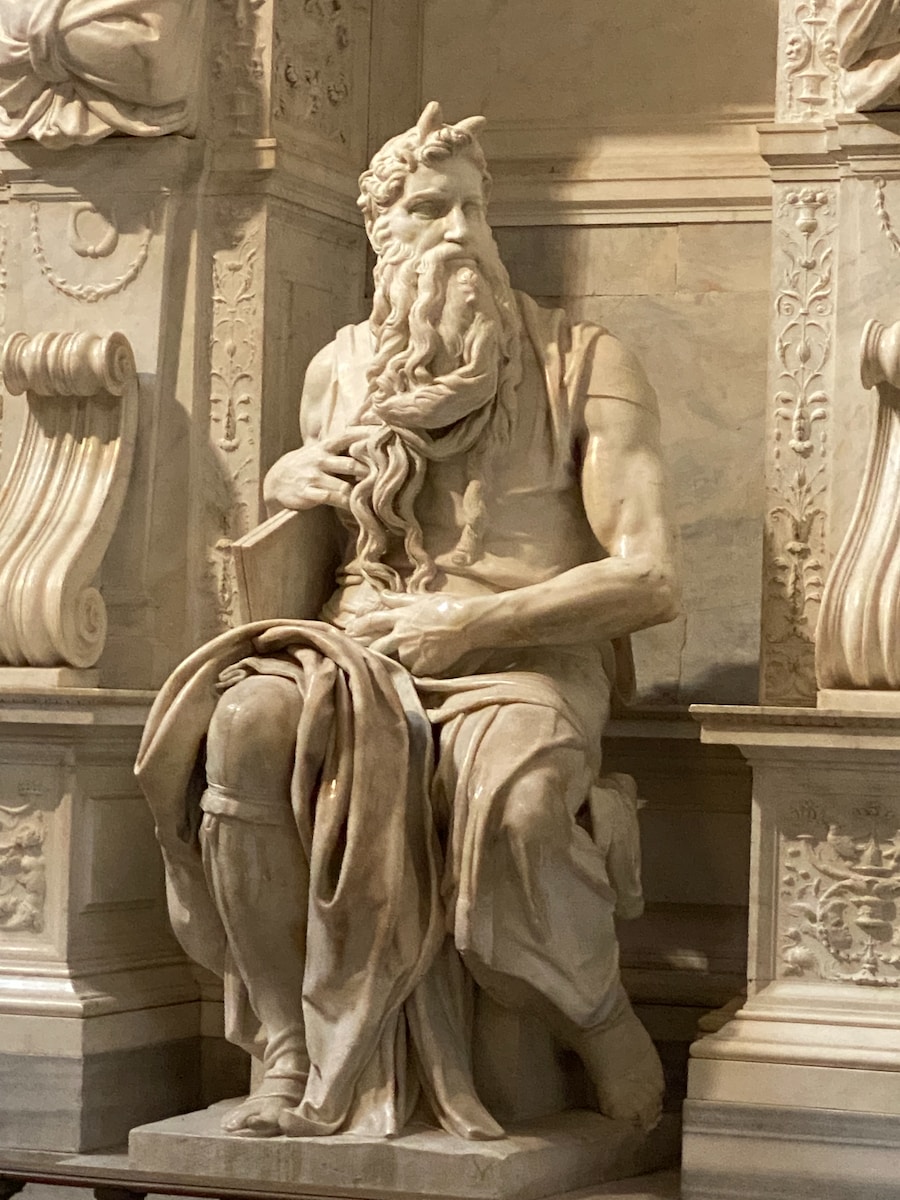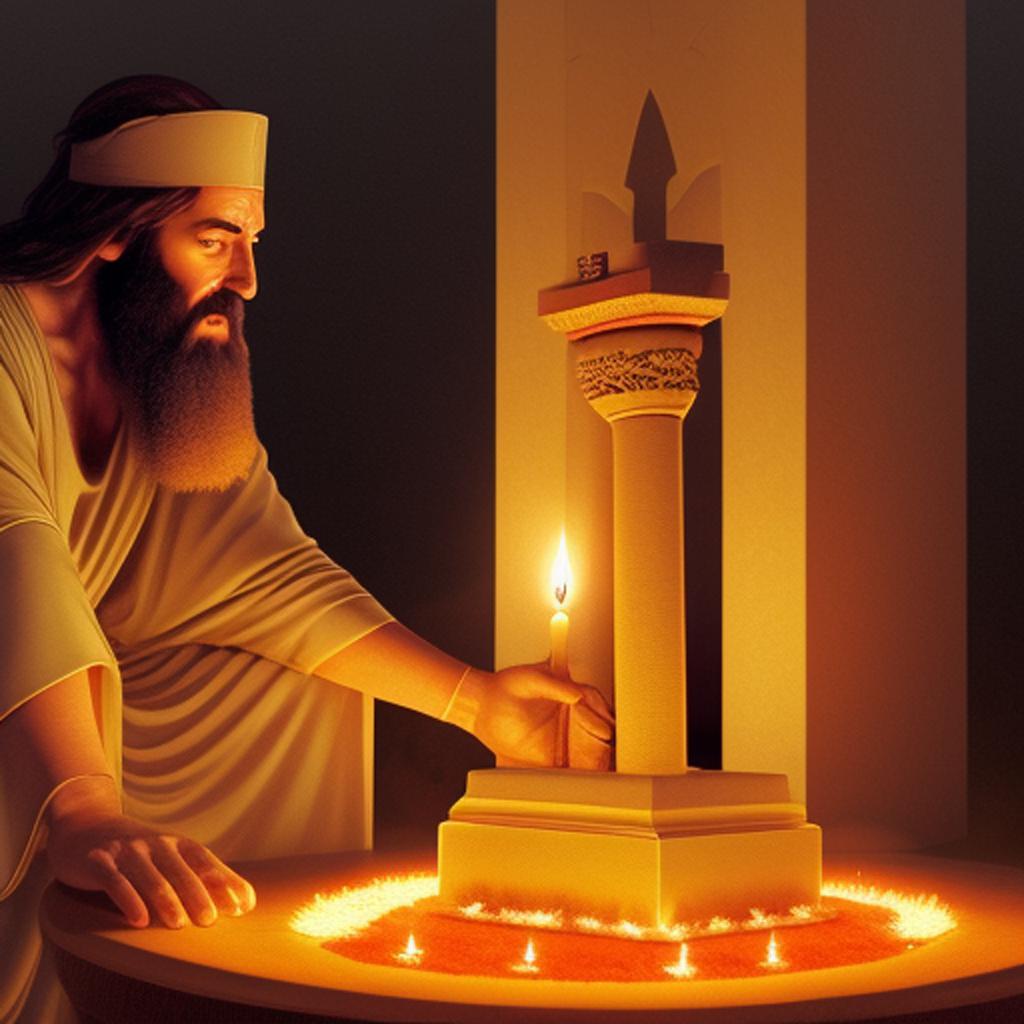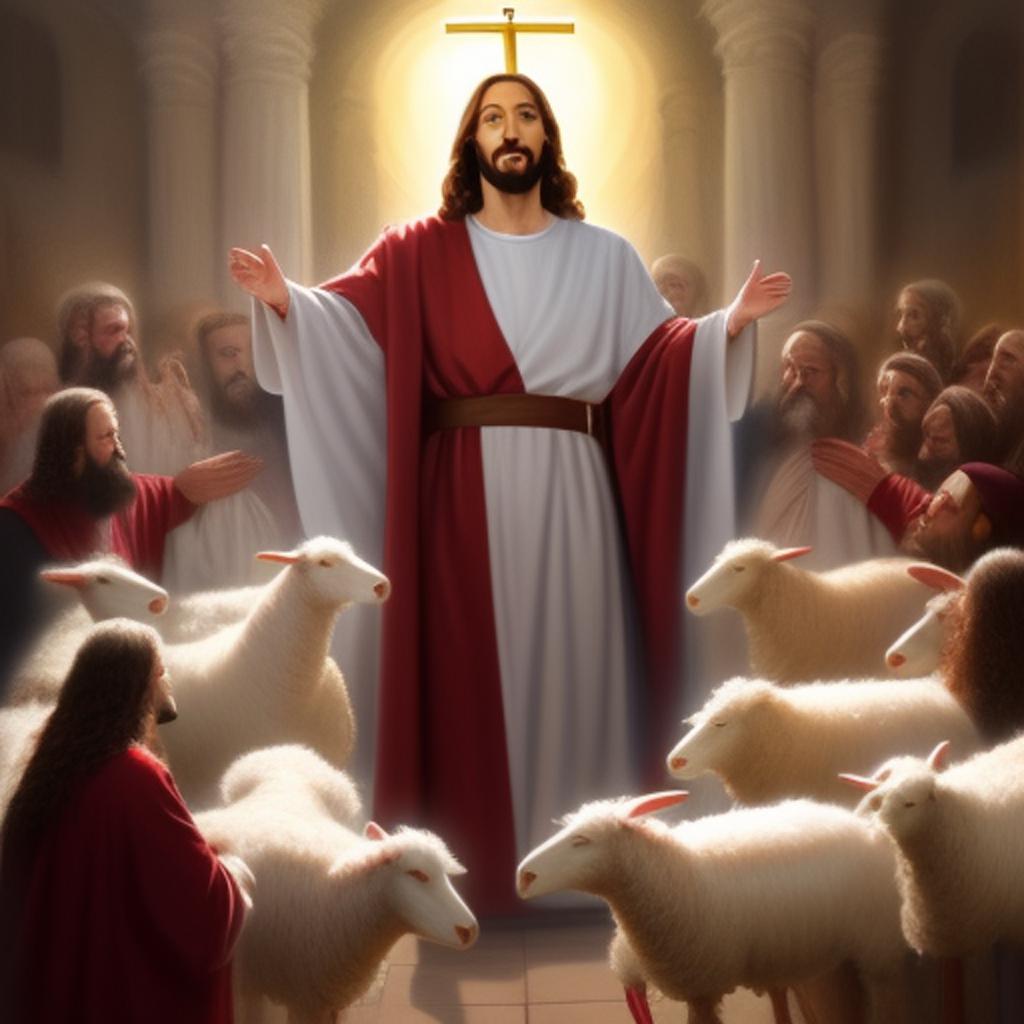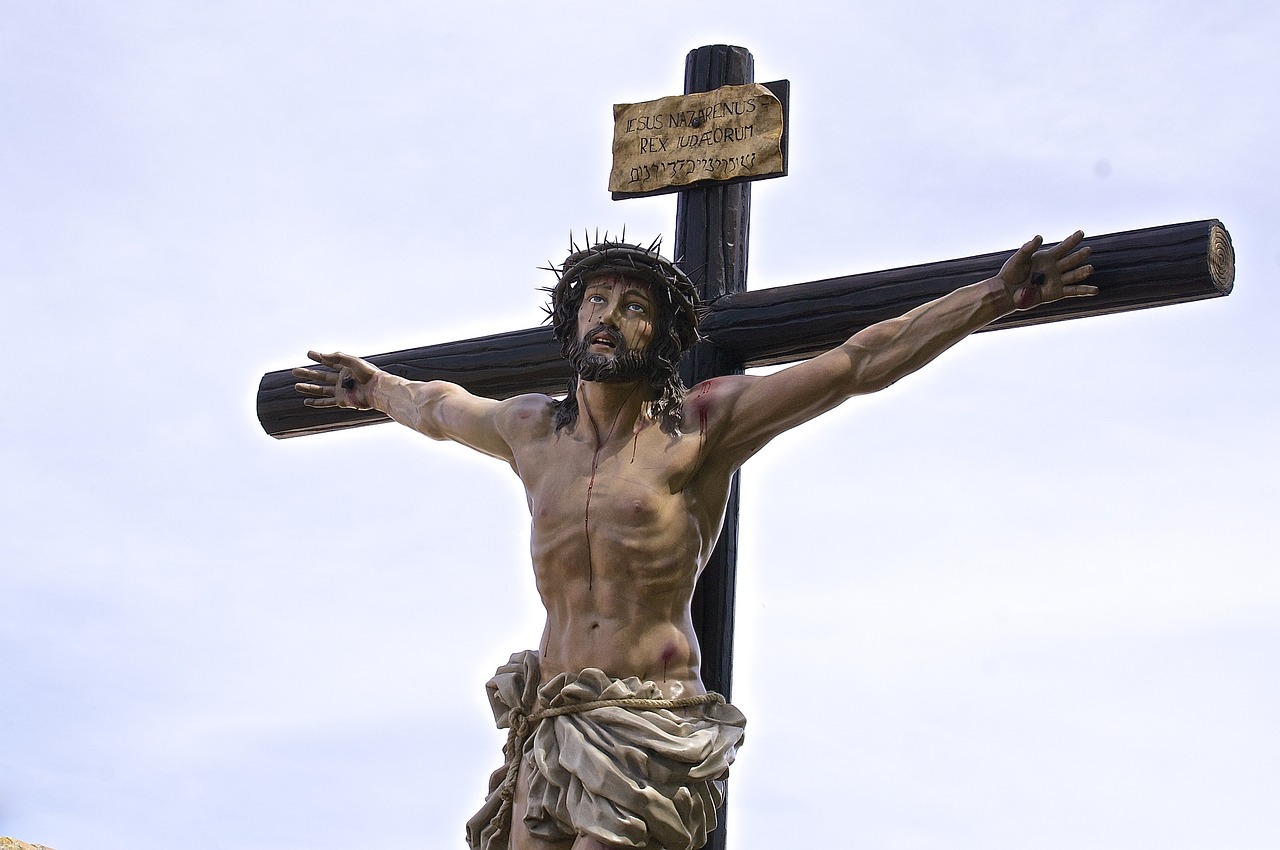Introduction: Exploring the Connection between Leviticus 27 and Messianic Jesus
Leviticus 27 holds significant theological implications in the context of the Old Testament, particularly concerning the sacrificial system and its connection to Messianic Jesus. Understanding the relationship between Leviticus 27 and Jesus is crucial for comprehending the fulfillment of the sacrificial system and its theological significance. In this article, we will delve into a more extensive exploration of this topic, shedding light on the connection between Leviticus 27 and Messianic Jesus.
The book of Leviticus plays a vital role in the Old Testament, serving as a guidebook for the Israelites’ worship and religious practices.Leviticus 27, an appendix to the previous chapters, focuses on vows and voluntary services to God. It outlines laws for sanctifying individuals, cattle, houses, and lands to God. Additionally, it emphasizes the commandment to give tithes for the service of God. Understanding Leviticus 27 helps us appreciate the freedom we have in worshiping God through Christ, unburdened by the ceremonial laws.
The connection between Leviticus 27 and Messianic Jesus can be seen in how Jesus fulfills the requirements and symbolism of the sacrificial system. By examining the significance of Leviticus 27 and understanding its context within the Old Testament, we can gain deeper insights into the redemptive work of Jesus and the theological themes it embodies. Let us now embark on a comprehensive exploration of Leviticus 27 and its relation to Messianic Jesus.
Overview of Leviticus 27
To understand the significance of Leviticus 27, it is essential to provide a brief overview of the book of Leviticus itself. Leviticus is a foundational book in the Old Testament, containing instructions and regulations for the Israelites’ worship and religious practices. It covers various topics, including sacrifices, cleanliness, holiness, and the role of the priesthood.
Leviticus 27, as an appendix to the previous chapters, focuses specifically on vows and voluntary services to God. It provides guidelines for individuals who wish to make vows or dedications to God, offering something of value as an act of devotion or thanksgiving. These dedications can include people, animals, houses, or lands. Once something is vowed or dedicated, it becomes holy and belongs to God.
The laws outlined in Leviticus 27 demonstrate the importance of keeping one’s word and honoring commitments made to God. It emphasizes the sanctity of what is dedicated to God and the seriousness with which vows should be taken. This chapter provides a framework for understanding the significance of dedicating oneself or one’s possessions to God and the value of fulfilling one’s commitments.
For example, consider a situation where an individual makes a vow to dedicate a portion of their land to God. Once the land is vowed, it becomes holy and cannot be sold or exchanged. If the person wishes to redeem the land, they must pay its assessed value, plus an additional twenty percent. This act of redemption symbolizes the release from the vow and the restoration of the land to its original purpose.
Understanding the principles and laws outlined in Leviticus 27 allows us to appreciate the importance of dedication and commitment in our relationship with God. It highlights the value of fulfilling our promises and the significance of offering our lives and possessions to Him.
The Significance of the Sacrificial System in the Old Testament
The sacrificial system held immense significance in the Old Testament, particularly in seeking forgiveness, atonement, and reconciliation with God. It was through the various types of sacrifices that the Israelites could approach God and find restoration. The sacrificial system played a central role in their worship and religious practices.
Sacrifices in the Old Testament took different forms, such as burnt offerings, sin offerings, and peace offerings.Each type of sacrifice had symbolic meanings that pointed to the need for repentance, substitutionary atonement, and communion with God. The blood of the animals represented the life given for the forgiveness of sins, while the act of sacrifice demonstrated the seriousness of sin and the desire for reconciliation with God.
For instance, consider the burnt offering, which was completely consumed by fire. This sacrifice symbolized total surrender and dedication to God. The animal offered in the burnt offering represented the person offering it, signifying the surrender of their entire being to God’s will and authority.
The sacrificial system served as a temporary means of forgiveness and restoration until the coming of Jesus. It was a foreshadowing of the perfect sacrifice that Jesus would offer on the cross. Through His death and resurrection, Jesus became the ultimate sacrifice, providing forgiveness of sins and reconciliation with God for all who believe in Him.
For example, Jesus’ sacrifice on the cross can be seen as the fulfillment of the sacrificial system described in Leviticus 27. Just as the animal sacrifices in the Old Testament were offered to atone for sin and bring about reconciliation with God, Jesus offered Himself as the perfect and final sacrifice. His blood shed on the cross took away the sins of the world and provided the ultimate atonement.
The Concept of Redemption and Atonement in Leviticus 27
Leviticus 27 addresses the concept of redemption and atonement within the Israelite community. It provides laws and practices for the redemption of consecrated items and the valuation of individuals for redemption. These regulations were meant to bring about redemption and atonement for the people of Israel, emphasizing the importance of offering to God what had been dedicated to Him. The concepts of redemption and atonement presented in Leviticus 27 find their fulfillment in the person and work of Messianic Jesus.
For instance, consider the redemption of a person who has been dedicated to God. If someone dedicated themselves to the service of God but later wanted to be released from that vow, they could be redeemed by paying a sum of money to the priest. This act of redemption symbolized their release from the vow and their return to a normal life.
Jesus’ sacrifice on the cross provided the ultimate redemption and atonement for humanity. Through His death and resurrection, Jesus paid the price for our release from the bondage of sin and death. We are no longer bound by the requirements of the law but are set free by God’s grace and mercy. Jesus’ sacrifice fulfilled the laws and practices of redemption and atonement described in Leviticus 27, offering us the opportunity to be reconciled to God.
Messianic Jesus and the Fulfillment of the Sacrificial System
Messianic Jesus perfectly fulfills the sacrificial system described in Leviticus 27. Throughout the Old Testament, various prophecies and foreshadowings pointed to Jesus as the ultimate sacrifice who would take away the sins of the world. By examining the teachings and actions of Jesus, we can see how He fulfilled the requirements and symbolism of the sacrificial system.
One example of Jesus’ fulfillment of the sacrificial system can be seen in the symbolism of the Passover lamb. In the Old Testament, the Israelites were commanded to sacrifice a lamb and put its blood on their doorposts as a sign of protection from the judgment of God. This sacrifice foreshadowed the ultimate sacrifice that Jesus would make on the cross. Just as the blood of the Passover lamb saved the Israelites from physical death, the blood of Jesus saves believers from spiritual death.
Jesus’ sacrifice on the cross fulfilled the requirements of the sacrificial system, providing forgiveness of sins and reconciliation with God. He became the perfect and final sacrifice, putting an end to the need for animal sacrifices. Through faith in Jesus, believers can experience the fullness of God’s grace and the freedom to worship Him in spirit and truth.
Another example of Jesus’ fulfillment of the sacrificial system is found in His role as the High Priest. In the Old Testament, the High Priest served as the mediator between God and the people, offering sacrifices on their behalf. Jesus, as the ultimate High Priest, offered Himself as the perfect sacrifice for the sins of humanity. His sacrifice opened the way for direct access to God and eternal reconciliation.
Jesus’ Impact on the Old Testament Laws
The coming of Jesus has fundamentally changed our relationship to the Old Testament laws.Christ’s death put an end to the sacrificial system of the Old Testament, as He became the perfect and final sacrifice. Jesus’ teachings emphasized the importance of love, sound doctrine, and aligning with God’s original design in creation. Our relationship with God is no longer based on adherence to the Mosaic law but on faith in Christ’s redemptive work and the indwelling of the Holy Spirit. The New Testament provides guidelines for understanding which Old Testament laws still apply and how they are recontextualized in light of the new covenant.
One example of Jesus’ impact on the Old Testament laws can be seen in His teachings on the Sabbath. In the Old Testament, keeping the Sabbath was a commandment that required strict observance. However, Jesus challenged the religious leaders’ understanding of the Sabbath and emphasized its true purpose. He taught that the Sabbath was made for man, not man for the Sabbath, and that acts of mercy and compassion were permissible on the Sabbath.
Jesus’ teachings on the Sabbath and other aspects of the law revealed a deeper understanding of God’s intentions and the heart behind the commandments. While the moral principles underlying the Old Testament laws remain relevant, Jesus’ teachings provide a new perspective on their application. Christians are called to follow the principles of love, justice, and righteousness that are found throughout the Old Testament, but they are no longer bound by the ceremonial and ritualistic aspects of the law.
The New Testament provides guidelines for determining which Old Testament laws are still applicable to believers. For instance, the apostle Paul, in his letters, addresses specific issues related to the application of the law in the lives of believers. Through the guidance of the Holy Spirit and the teachings of Jesus and the apostles, Christians can discern how to live out the principles of the law in their daily lives.
Reading Leviticus in Light of Christ
Interpreting the book of Leviticus in light of Christ can be challenging, as it contains numerous laws and regulations that may seem distant or irrelevant to modern readers. However, by viewing Leviticus through the lens of Christ, we can find deeper meaning and relevance in its teachings.
One proposed method for reading Leviticus in light of Christ is considering its structure as a double-chiastic structure with twelve sections [4]. This structure helps us identify different themes and patterns within Leviticus, allowing us to see how they relate to Messianic Jesus.
For example, the laws of presence in Leviticus, such as offerings, priests, purity, and atonement, find their fulfillment in Jesus. He is the ultimate sacrifice, the perfect High Priest, and the source of eternal purity and atonement. These laws, while no longer requiring physical sacrifices, have typological and spiritual relevance in our lives as believers in Christ.
On the other hand, the laws of life and honor in Leviticus remain relevant and applicable to believers. These laws encompass various aspects of daily life, such as ethical conduct, sexual morality, and social justice. Jesus’ teachings reinforce the importance of these principles, providing a framework for believers to live according to God’s design.
However, it is crucial to exercise caution when applying this method to other books of the Pentateuch. The specific structure and themes found in Leviticus may not directly transfer to other books. Each book must be studied and interpreted in its own context, bearing in mind the overarching principles of God’s Word and the teachings of Jesus and the apostles.
Leviticus 27 and the New Covenant
Leviticus 27 has significant implications within the context of the new covenant established by Jesus. The sacrificial system described in Leviticus has been superseded by the ultimate sacrifice of Jesus. The emphasis on redemption and atonement in Leviticus 27 finds its fulfillment in Jesus’ redemptive work on the cross. Understanding Leviticus 27 helps believers grasp the transition from the old covenant to the new covenant and appreciate the depth of Christ’s sacrifice.
The sacrificial system described in Leviticus was a temporary provision to point the Israelites towards their need for a Savior. Jesus, as the perfect and final sacrifice, fulfilled the requirements of the law and brought about a new covenant. In this new covenant, believers are no longer bound by the ceremonial laws and the need for animal sacrifices. Instead, we find forgiveness, redemption, and atonement through faith in Jesus and His sacrifice on the cross.
Leviticus 27 highlights the significance of dedication and commitment to God, but it also emphasizes our inability to perfectly fulfill the requirements of the law. The sacrificial system and the laws of Leviticus point to our need for a Savior who can provide true redemption and atonement. In Jesus, we find the fulfillment of these requirements, and through faith in Him, we are brought into a new covenant relationship with God.
Theological Reflections on Leviticus 27 and Messianic Jesus
The connection between Leviticus 27 and Messianic Jesus offers profound theological reflections. Jesus’ fulfillment of the sacrificial system and His role as the ultimate sacrifice point to the depth of God’s love and the extent to which He was willing to go to restore a relationship with humanity. Through Jesus, believers experience the forgiveness of sins, reconciliation with God, and the freedom to worship Him in spirit and truth.
One theological reflection that can be drawn from the connection between Leviticus 27 and Messianic Jesus is the concept of substitutionary atonement. In Leviticus, the sacrifices offered were a substitute for the punishment that the people deserved for their sins. The animals that were sacrificed took the place of the guilty party, bearing the penalty for their wrongdoing.
Jesus’ sacrifice on the cross is the ultimate act of substitutionary atonement. He took upon Himself the punishment that we deserved for our sins, offering Himself as a substitute for us. Through His sacrifice, we can experience forgiveness and reconciliation with God. This theological reflection highlights the depth of God’s love and the extent to which He was willing to go to provide salvation for humanity.
Conclusion: Embracing the Fulfillment of the Sacrificial System in Jesus
In conclusion, Leviticus 27 holds significant theological implications in its connection to Messianic Jesus. Understanding the relationship between Leviticus 27 and Jesus is crucial for comprehending the fulfillment of the sacrificial system and its theological significance. Through Jesus’ sacrifice, He fulfills the requirements and symbolism of the sacrificial system, providing redemption, atonement, and reconciliation with God.
By embracing the fulfillment of the sacrificial system in Jesus, believers can experience the fullness of God’s grace and enter into a deep and meaningful relationship with Him. Leviticus 27 reminds us of the importance of dedication and commitment in our relationship with God. It also highlights our need for a Savior who can provide true redemption and atonement.
As we reflect on the connection between Leviticus 27 and Messianic Jesus, may we appreciate the depth of God’s love and the significance of Jesus’ sacrifice. Through faith in Jesus, we can find forgiveness of sins, reconciliation with God, and the freedom to worship Him in spirit and truth. Let us continue to explore and study the richness of God’s Word, finding in it the revelation of His love and salvation through Messianic Jesus.



